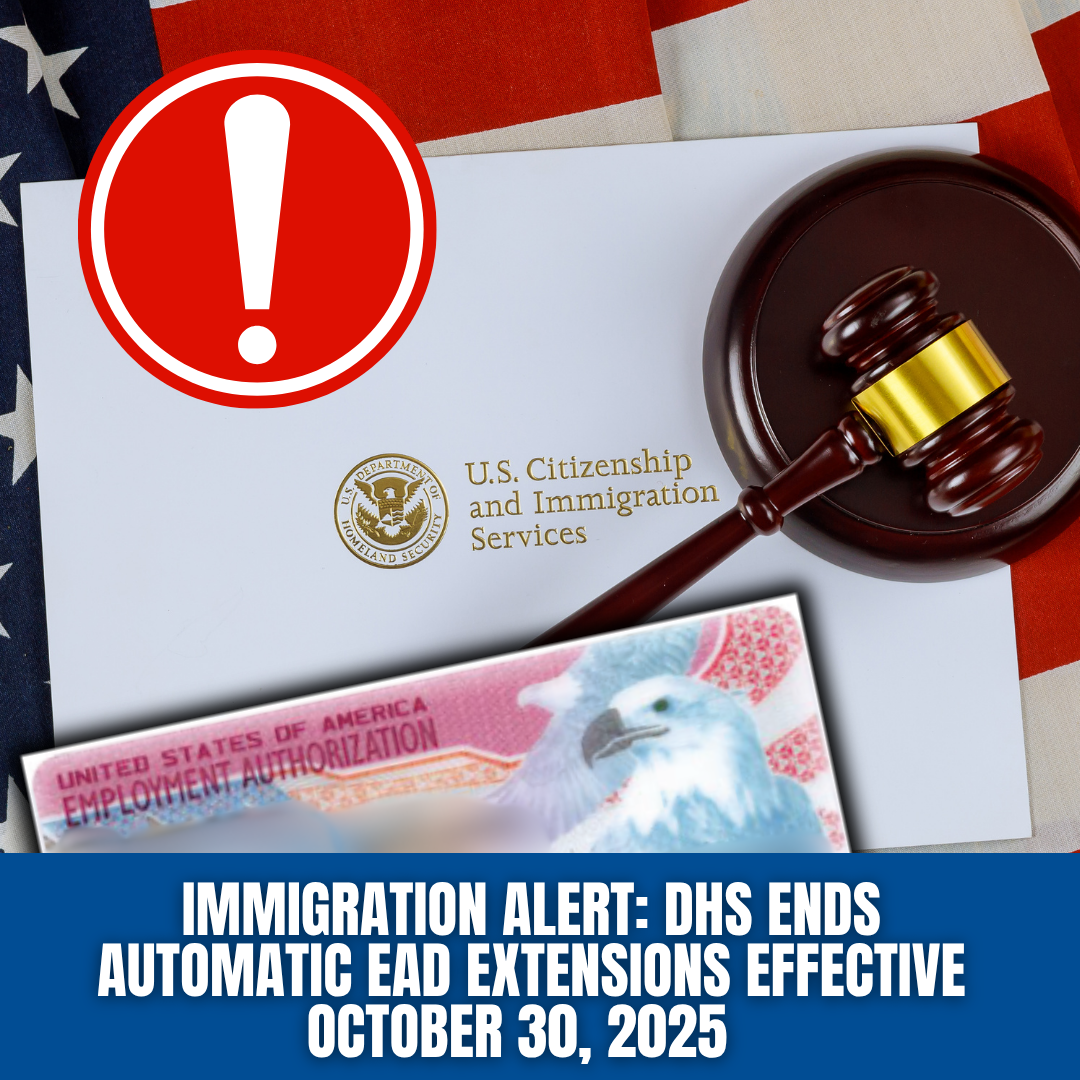

Copyright © 2025 Towasze.Studio - Todos los derechos reservados.

USCIS has announced a major change affecting individuals who rely on Employment Authorization Documents (EADs), also known as work permits. Effective October 30, 2025, the agency will no longer automatically renew EADs for certain categories of applicants. This marks a significant departure from prior policy and could create unexpected employment gaps for many immigrants who have previously depended on these automatic extensions while their renewal applications were pending.
Until now, applicants who timely filed their EAD renewal applications under eligible categories—such as those with pending asylum, green card applications, or Temporary Protected Status (TPS)—were granted an automatic extension of their work authorization for up to 540 days beyond the expiration date listed on their current card. Through the entirety of Trump’s first administration, applications were granted an automatic 180-day extension. This grace period accounted for potential delays by the government in processing EAD renewal applications and allowed individuals to continue working legally while their applications were pending. This policy protected both employees and employers from disruptions caused by government delays.
Under the new policy, however, USCIS will no longer provide automatic extensions for certain categories once the initial EAD expires. As of today, the USCIS website on automatic extensions has not yet been updated to show which categories will no longer receive an automatic extension leaving applicants and employers in the dark. The agency has stated that this shift is intended to “enhance vetting” and ensure that every renewal undergoes a full eligibility review before an applicant continues employment. While increased oversight may sound reasonable in theory, it’s important to recognize that individuals affected by this change (1) have already been thoroughly vetted by USCIS because they are renewing something that has already been approved by the same agency and (2) many have approvable applications pending with USCIS. Pending applications are often the basis of eligibility for employment authorization documents. Accordingly, many of those affected are people who have previously passed background checks, submitted fingerprints, and met all eligibility requirements for their underlying immigration benefit and are simply renewing the same benefit because USCIS is still reviewing their primary application. For many, this new policy does not add meaningful security value—it simply creates new obstacles for those who have already been cleared by the same agency.
The practical impact on clients is significant. Without an automatic extension, applicants whose renewal applications remain pending after their current EAD expires will no longer be authorized to work until the new card is approved and received. That gap could mean lost wages, disrupted employment, and in some cases, job loss. Employers may also face uncertainty when verifying continued employment eligibility on Form I-9. At the same time, USCIS processing times for EAD renewals remain lengthy. As of October 2025, average processing times for Form I-765 applications can take upwards of 4 months, depending on the category and service center. Some humanitarian categories are taking over 7 months. It is important to note that an applicant is not permitted to submit a renewal application unless they are within 6 months of the expiration date of the current employment authorization card. This means that without an automatic extension, even a timely renewal filing could leave a worker without authorization.
We recommend that all clients review their current EAD expiration dates and file renewal applications as early as allowed—180 days before expiration—to minimize the risk of a lapse. Keep your USCIS receipt notice, monitor your case status closely, and notify our office if processing delays exceed normal timeframes. Employers should also be prepared to update internal policies and ensure HR departments are aware of this change to avoid compliance issues during the transition period.
This development highlights how critical it is to stay proactive and informed in a constantly changing immigration landscape. Our firm will continue to monitor further USCIS guidance and advocate for policies that support fairness, consistency, and predictability for our clients. If you have questions about how this change may affect your work authorization—or wish to discuss strategies to prevent interruptions—please reach out to our office.
Warm regards,
Agarwal Law Group
Ya sea que tenga una pregunta legal, necesite programar una consulta o simplemente desee obtener más información sobre cómo podemos ayudar, puede contar con nosotros para responder de manera rápida y clara.